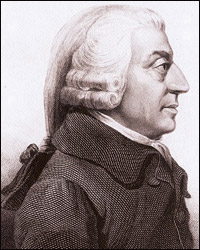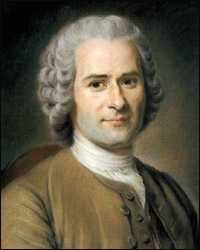Feb. 20th - World Social Justice Day
 The UN, in its global calendar had allocated February 20th as the
'World Social Justice Day' in order to accord social justice the
rightful place it deserves in modern society. Yet it is unfortunate that
this particular day has just passed us by, in a somewhat 'low profile'
way, as if to say that social justice is 'just another one of those
things' that is of relevance only to world bodies such as the UN. The
reality however is that today's society can ill-afford to treat social
justice so casually because it is social justice that forms the core of
current human civilization, making it the condition precedent for human
advancement and world peace. The UN, in its global calendar had allocated February 20th as the
'World Social Justice Day' in order to accord social justice the
rightful place it deserves in modern society. Yet it is unfortunate that
this particular day has just passed us by, in a somewhat 'low profile'
way, as if to say that social justice is 'just another one of those
things' that is of relevance only to world bodies such as the UN. The
reality however is that today's society can ill-afford to treat social
justice so casually because it is social justice that forms the core of
current human civilization, making it the condition precedent for human
advancement and world peace.
Evolution of justice
The term social justice is of comparatively recent origin compared to
its more hackneyed cousins such as sociology, socialism and social
contract. Social justice, as the term denotes is coined to study the
evolution of justice in the social milieu. It is the continuous probing
in to what is generally accepted as justice, in a social regime as it
interacts with individual liberty, rights and responsibility, in the
context of social well-being and advancement.
Since society is made up of individuals, the individual remains the
simplest as well as the basic accountable of units in a society. The
individual then forms in to family and finally in to the society at
large. Social justice thus has to recognize the symbiotic relationship
between the individual and the society and make just laws so that
individual interest does not impinge on that of the society.
The individuals are said to be 'born free' but such freedoms get
compromised as the individual graduates from individual through family
membership to become a member of a social group. Effectively the
individual cannot enjoy the freedom of being a mere individual when he
has to place himself in the family and finally in a
|

Karl Marx |
|

Adam Smith |
|

Jacques Rousseau |
society. In that
process the individual freedoms that are thus not consistent with the
wider social interest becomes 'anarchy'.
French revolution
Great civilizations therefore are the ones that synergize individuals
in to societies effecting the right balance between individual
aspirations and group aspirations. The loss of individual liberty
becomes an investment for the greater good of the society and then for
individual advancement eventually.
The events preceding the French revolution right up to the Second
World War heralded the new thinking among globe trotting colonial powers
of the need for social justice. This entailed the acceptance of the
rights of other states and rights of the individuals. Communism is a
form of social justice and so is capitalism. The difference is that
communism emphasizes on social contract of the society while capitalism
believes more in the individual's capacity for creativity and
initiative.
The vacuum between these two extremes today have been the subjects of
different political theories. The ideal system of social justice however
is the one that inspires the individual without harming the social
fabric where he is a member. The well- known theorists of social
mobility such as Karl Marx, Frederick Engels, Jacques Rousseau and even
Adam Smith based their theories on natural science and the evolutionary
theory of human and social biology. They were able to analyze the
history of social evolution and thus enunciate a future course based on
those analyses.
Political system
The ultimate aim of every political system is social justice. Even
the system of jurisprudence and media are expected to cater to this end.
But there is a tendency among individuals that make up these
institutions to conjure up pockets of vested interests within those
institutions to thwart the very purpose for which they are created. Sri
Lanka became independent after a 443 year colonial rule with social
dichotomies. Legislation introduced by independent Governments for
social justice ran in to difficulties because there were strong groups
of vested interest that were bent on preserving their narrow interest at
the cost of social justice.
Past forms of governance such as feudalism had little social justice
because they were systems that controlled social means and masses
through a traditional hierarchy. Hence it prevented individual
initiative and a 'level playing field' for all. But feudalism had
stability required to control the State hence it prevented
disintegration of the nation State. The challenge therefore before
social justice in a modern state is to accommodate maximum individual
liberty without compromising on national stability and that is why the
State is empowered to enact laws to govern the country.
Modern society
The equality of persons before the law however should not be taken to
imply that degrees of power and wealth should be same for all, but
rather that power shall stop short of violence and never be exercised
except by virtue of authority and law. Such equality, as often thought
to be, is a chimera of theory and could not exist in reality. But if
abuse is inevitable, ought the law not then, at least try to control it?
This is precisely because as the forces of vested interest and
individuality always try to destroy equality, the force of legislation
ought to always attempt preserve it.
Modern society owes much of its advancements to the prevalence of
social justice at different times of its history. This world today would
not have been what it is, if Isaac Newton was not saved by social forces
that went against the tyranny of Hitler; if Newton was not liberated as
a son of a yeoman (bodyguard); if Chekhov could not liberate himself
from being a grandson of a Serf. Similarly had there been social justice
to prevent, Galileo from being imprisoned, Socrates and Jesus Christ
from being executed, the world civilization would certainly have reached
better heights.
Individual aspiration
Every member of the society is equipped with positive talents and
energies. Therefore social justice should facilitate and harness such
capacities for social advancement. Civilization owes more to the
commoners than Kings and Rulers because commoners have always been in
the majority.
In the end then, social justice should; ensure social equity thereby
avoiding conflicts; ensure the gift of individual aspiration and talent
avoiding frustration and stifling; ensure stability and social cohesion
avoiding anarchy and idiocy. Injustice somewhere is a threat to social
justice everywhere.
[email protected] |



